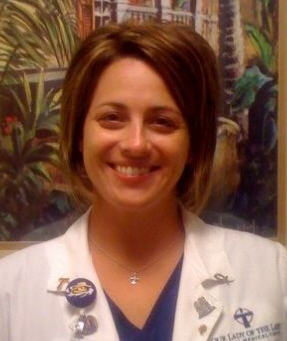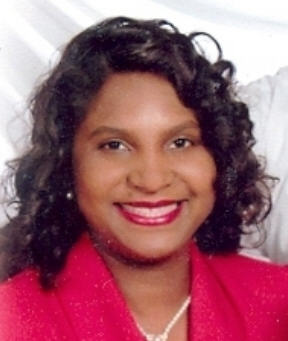
Ashley Autin, MLS(ASCP)cm , Class of 2006
Growing up, I always dreamed of working in healthcare. I completed my bachelor's degree
from LSU in BioChemisty, and like so many others thought, "What now?" I spoke with
a friend who had recently become a Med Tech at a local hospital in Baton Rouge, and
after doing research in the Allied Health profession it sounded tailor made for me.
I enrolled in the Clinical Laboratory Sciences program at LSUHSC. Staying true to
my first bachelors, I enjoyed the chemistry courses and the part I could play in superior
patient care. After receiving my degree and passing my boards, I worked in chemistry
and as a generalist at large hospitals in Baton Rouge and Covington, respectively.
I then found myself with an opportunity to transition to the private sector of our
industry. I accepted my current position as a Laboratory Specialist with a chemistry
and blood bank company. I support customers in both North Carolina and southern Virginia
in regards to analyzer and assay troubleshooting. In addition to my support duties,
I help implement new customers with full validation studies. This position puts a
large emphasis on clinical lab education and experience all the while getting the
gratification of customer interaction. A medical technology degree can be the first
step of any journey and my journey is still something I am assiduously enjoying!

Amanda Leleux Dufrechou, Class of 2002
Medical Technology is a great profession and can lead the way into quick advancement
in the medical profession. LSUHSC prepared me for working well with others as well
as working efficiently on the bench. I began my profession working at a 700 bed hospital
right our of school in Microbiology, which could have been a bit overwhelming for
a new hire fresh out of school but LSUHSC prepared me for the balance of high volume
testing with good quality results. After 3 years, I was offered a Sr. Technologist
position that included the position of Educational Coordinator over the LSUHSC students
for our laboratory. Since my education was still very fresh, I took on this new role
with ease and enjoy working with new students every year and being able to keep close
contact with all of the professors at LSUHSC. Responsibilities include creating schedules
for students during their clinical rotations, compiling section grades, administering
pretests, and assisting with end of the year presentations. It allows me to keep abreast
of new educational tools and assist with the training of prospective employees. I
am currently a supervisor of Outreach Operations at the same hospital and chose to
remain the Educational Coordinator because of the many benefits that the position
allows me to experience.

Kolynda Parker, Class of 1998
Obtaining both a B.S. in Medical Technology and Master of Health Science degree in the field of Clinical Laboratory Sciences have provided several opportunities in healthcare. Currently, working as a Laboratory Information System Assistant Administrator has been a rewarding and challenging path. Providing clinical laboratory support, handling LIS database maintenance, coordinating software upgrades, instrument installations, and managing large scale LIS projects are a few responsibilities that encompass this role. In addition, providing LIS services and being an integral member of healthcare for the eight (8) public HCSD laboratories and hospitals in Louisiana is a great experience in Medical Technology. The comprehensive curriculum and training received at LSUHSC New Orleans has prepared me and provided avenues to successful career choices. I believe Clinical Laboratory Science is a wonderful profession that will provide great opportunities and can lead to other successful endeavors in life.

Misty Melerine PA-C, Class of 2001
My former training and experience as a Clinical Laboratory Scientist was anextremely
valuable asset to my current career as a Physician Assistant. When I decided to further my education my applying to PA school I knew that my background
would come in very helpful. During the admissions process I was told that my previous
education and employment was a huge advantage. While in school I realized this advantage.
I had a large base of knowledge to call upon during many of my classes. In PA school
we had a one semester class called “Lab Science”. This class focused on ALL aspects
of Clinical Laboratory Sciences. I could imagine that it was very overwhelming for
some people, for me however it was a nice review. I was even asked by my classmates
to offer review sessions before exam time. It felt good to have this advantage as
I was able to focus more on my other classes. Now, in my job as a PA, I enjoy using
my previous training. I currently practice Internal Medicine and I order and review
many labs on a daily basis. It is also very helpful that I know the “ins and outs”
of a busy lab. Other health care providers may not understand why it taking their
wound culture sensitivities a few days to be resulted. I on the other hand understand
the entire process. It has helped me to understand and appreciate that everyone involved
in medicine has an important job to do and that team work is essential.

Sarah Magee, Class of 2008
While most medical technology graduates jump right into the human laboratory world, I chose a different path. Animals get sick too and their well being relies on their laboratory results. I love animals and the challenges they bring working with them. That is why I became a veterinary medical technologist at the School of Veterinary Medicine at LSU. The education, training, and concepts I learned helped me as I prepared to undergo training as a veterinary medical technologist. There are variances in the laboratory values from every species and specific breeds, but the concepts and technology learned and taught in medical technology school are very similar. I rely on the concepts I learned at LSUHSC in New Orleans to answer laboratory based questions from veterinary students, interns, residents, and clinicians. Being a veterinary medical technologist has allowed me to expand my knowledge across a broad range of animals and appreciate the differences and uniqueness of animal laboratory medicine. Among my rotations, differentials are my favorite. I never know what I might find in a blood smear that cannot be found in a human smear such as strictly animal parasites like heartworm or Mycoplasma felis. Just like in the human world, veterinary medical technologists help veterinarians make life saving diagnoses.
